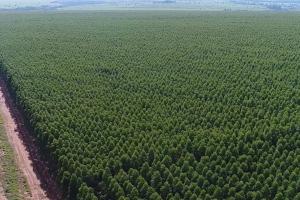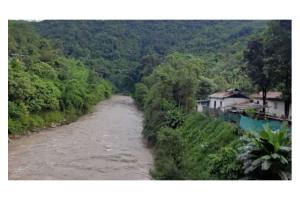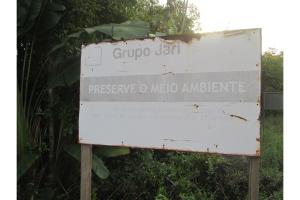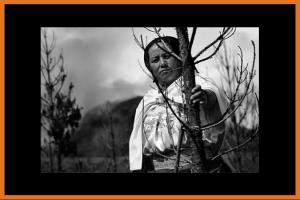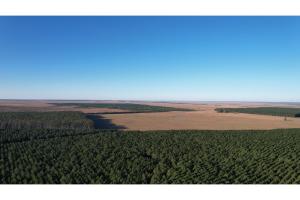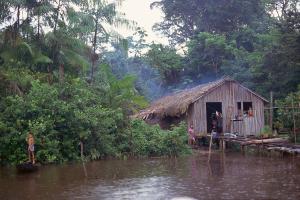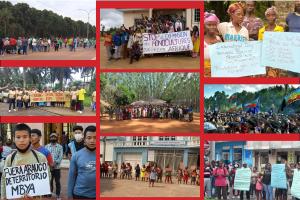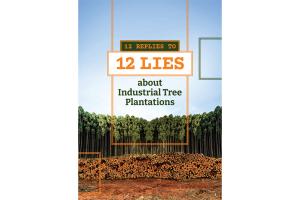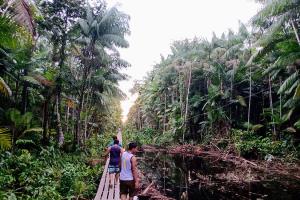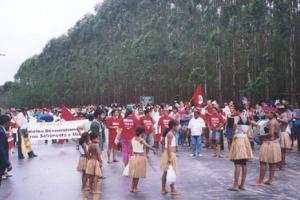Bulletin articles
19 December 2023
In the past two years, tree plantation initiatives aimed at generating carbon credits have doubled. Whether as large monocultures or as nicely sounding projects with grassroots communities, tree plantations for carbon offsetting are neither a solution to the climate chaos nor beneficial to rural communities in the Global South.
Bulletin articles
25 October 2023
Land related struggles in India’s Northeast states might worsen with the push to expand oil palm plantations on small-farmers and Indigenous land, threatening their food sovereignty and the ancestral practice of Jhum (shifting cultivation). On top of this, a new Forest Amendment Law will facilitate this expansion, jeopardizing further the region’s forests and Indigenous Peoples.
Bulletin articles
25 October 2023
WRM’s reply to Biofílica Ambipar’s “Clarification Note” about the article "REDD and the Green Economy exacerbate oppression and deforestation in Pará, Brazil", written by WRM and published in its Bulletin of July 2023.
Bulletin articles
22 July 2023
In this bulletin, focused on the violence that the so-called ‘green economy’ represents for Indigenous Peoples and peasant communities, we remember an interview with Josephina Lema, member of the Otavalo people of the Kichwa (Quechua) nation.
Bulletin articles
22 July 2023
After 14 years of profiting from tree plantations—and at the cost of destroying wetlands and communities—the Harvard Management Company, one of the largest investment funds, sold 88,000 hectares in Corrientes to Argentina's largest electric power company, Central Puerto, which also wants to produce wood, biomass energy and carbon offsets.
Bulletin articles
16 January 2023
What governments agree (or don't agree) on during the UN climate summits is not that relevant in the real world of carbon market expansion. Companies, governments, conservation NGOs, consultancies, brokers, banks and many other interested players are working hard to establish carbon market schemes as ‘the only way forward’.
Bulletin articles
11 October 2022
Industrial tree plantations have always been about corporate control over community fertile lands. The monoculture model inherently endangers communities’ survival, food sovereignty and autonomy, deepens the violence of patriarchy and racism while enforcing the same destructive and oppressive way of organizing land (and thus, people) as the one enforced during the colonial era.
Bulletin articles
11 October 2022
On the occasion of September 21st, 2022, the International Day of Struggle Against Monoculture Tree Plantations, WRM launched the briefing “12 Replies to 12 Lies about Industrial Tree Plantations”.
Bulletin articles
16 June 2022
Fossil fuels are at the root of the climate chaos – but the conditions for this crisis have been created by the interconnections and dependencies between colonialism, racism, patriarchy and class exploitation. To address climate chaos, therefore, it is necessary to address the unequal relationships of power upon which a fossil-fuel dependent capitalism is based.
Bulletin articles
23 March 2022
The control of land was vital to colonisers. It meant wealth, territorial influence, access to ‘resources’ and cheap (and often enslaved) labour. The separation of indigenous inhabitants from their territories was a crucial component that persists until today. The effect of this history continues to influence the management of and conflicts over land.
Bulletin articles
4 January 2022
Suzano was present at the 2021 UN climate negotiations for one main reason: to promote tree plantations as a ‘solution’ to climate change, under the name of ‘nature-based solutions’. It aims to profiteer ever more from the so-called climate policies.
Bulletin articles
17 December 2021
Tupinikim indigenous leaders, in Brazil, share the experience of their people in the struggle against one of the largest eucalyptus plantation and pulp production companies in the world, Aracruz Celulose – currently named Suzano Papel e Celulose.
